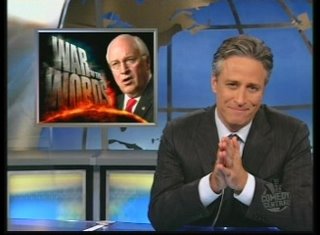War of the Words
Now that we are on the brink of another nuclear confrontation in which only time will tell if it is as serious as what President Kennedy faced with Cuba in 1962, it is interesting to see how the war of words that accompanies today’s confrontations will play out. The New Yorker this week noted that the likes of Rush Limbaugh and his other know-nothing flame-throwers on right wing talk radio joined the Bush administration in dismissing the first letter in a quarter of a century from an Iranian head of state to the President of the United States.
Limbaugh and his ilk of course went further than the administration, comparing the letter to “the Democratic talking points.” This sly conflation between the despotic and somewhat mad ruler of
Fortunately, in 1962 we had a president who was willing to talk to his counterpart. Much of course has been made of Kennedy so-called out-bluffing Nikita Khrushchev, but the historical record is clear” Kennedy found out through an exchange of letters what Khrushchev actually wanted and gave it to him: removal of nuclear theater-range missiles from Turkey. We had the same missiles when I was a GI in
But I digress – the point here is that although no one yet knows entirely what to do about




